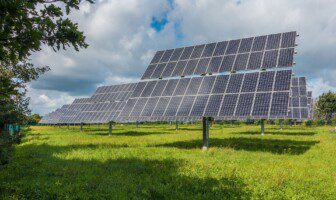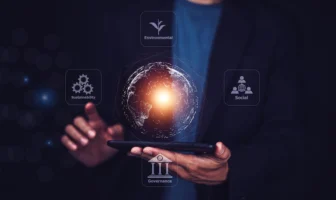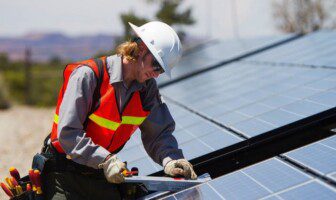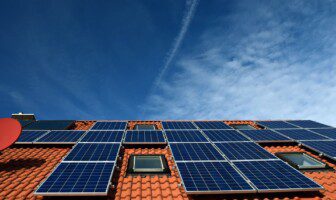Natural resources are difficult to overestimate since they provide humanity with a comfortable life on Earth. The consumption of natural resources in 2020 exceeded 100 billion tons, compared with 27 billion tons in 1970. An average North American consumes about 90 kg of natural resources every day.
Although scientists are making significant progress in exploring and using renewable resources, the protection and rational use of natural resources remains a very important task for all of us.
Companies may be looking for investments to modernize natural resource processing, manufacturing, improve supply chains, and protect resources. In many ways, tokenization can help here, which offers an easier and more transparent way to attract investments for any company.
However, many businesses do not yet fully understand how tokenization works and what benefits it can bring to them. Below, we highlight four impressive use cases for natural resource tokenization.
1. Carbon footprint listed on the exchange for the first time
TreeBR is a green blockchain project that aims to protect the Amazon rainforest. To do this, the startup sells tokenized securities backed by carbon offset. Investors can thus offset their carbon footprint. The raised funds go to the landowners, who use them to preserve trees. This saves carbon and reduces greenhouse gas emissions.
TreeBR is a non-commercial project aimed primarily at saving resources, not making a profit for investors. However, this is a prime example of how natural resource tokenization can be a great way to raise funds and solve a specific problem.
2. Tokenized teak tree production with Stobox
Silva Ortus is a plantation owner in Ghana who has had a good teak harvest in recent years. This wood is considered a premium material and is used to produce parquet and furniture.
Silva Ortus approached Stobox because it wanted to expand the market reach and sell teak in countries such as India, China, Vietnam, and others. The goal was to raise $15 million to harvest teak and charter a ship for transportation. The tokenization of natural resources and the conduct of the STO were completely taken over by Stobox.
This project also has ecological significance. For each tree cut down, the company will plant several new ones. New productions will be monetized with tokenized carbon credits which will also make the project environmentally friendly.
Investors receive converted bonds. In the first three years, investors will receive from 8 to 10% of the income; then, they can either take their money or turn it into shares. In the second case, they will receive equity participation in the company. They will be paid dividends and will also profit from the growth in the value of assets.
3. Tokenization of precious metal mines in America
For several years, Coronet Metals, a Nevada company, has been studying and evaluating tailings and slags waste. In October 2021, the company launched an STO built on an existing business of extracting non-ferrous and precious metals from tailings and slack left over in abandoned mines in the southwest of the country.
After the end of the STO (December 31, 2022), the company will use the funds raised for earthworks and equipment financing as part of a joint venture. Coronet Metals plans to use no water or chemicals at all and keep electricity consumption to a minimum. This will make the mining process environmentally friendly.
This case study perfectly shows how STO allows you to raise the necessary funds for production and provide benefits for investors.
4. Security token offering by a Romanian energy supplier
Restart Energy One SA is a private energy supplier in Romania that created and listed the first green bond on the Bucharest Stock Exchange last year. The company is a subsidiary of REIT AG, a Swiss energy holding company.
REIT AG raises CHF 8 million by offering blockchain digital certificates using DAURA, a blockchain platform also created in Switzerland. Interestingly, in order to become an investor in this STO, a potential investor must prove that they have offset their CO2 emissions. They can do this on the DAURA platform and calculate their CO2 emissions there.
The company’s main mission is to make the sector more transparent and democratic, as it currently suffers from transaction costs and bureaucracy. The aim of the project is also to help local power producers move towards a sustainable future together.
The money received during the STO will be used to purchase renewable operating assets and expand the business.
Summary
As you can see from the cases in this article, any kind of natural resource can be tokenized. You can use raised funds to expand production, conquer new markets, explore new, more environmentally friendly production methods, and so on. The first thing you need to do if you are interested in tokenization is to contact a consulting company such as Stobox. You will need support in several steps, from due diligence to marketing strategy, in order for the STO to be successful. New blockchain technologies and security tokens can open up great opportunities for your business related to the extraction or processing of natural resources.
Read Also






























